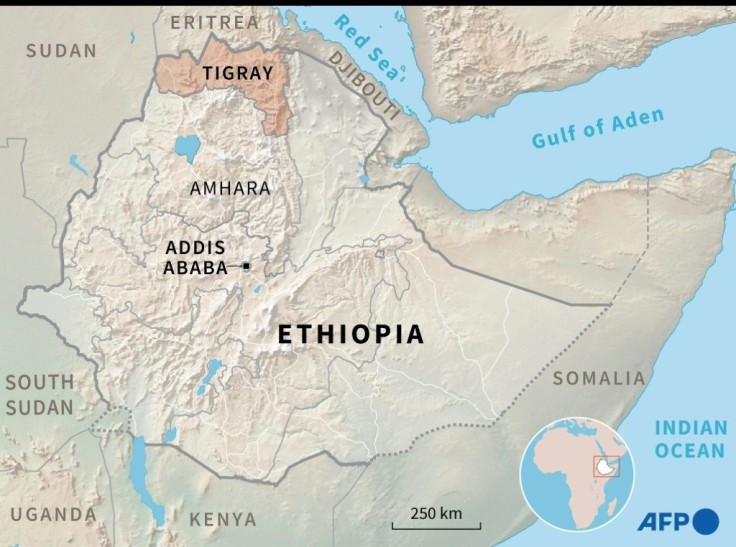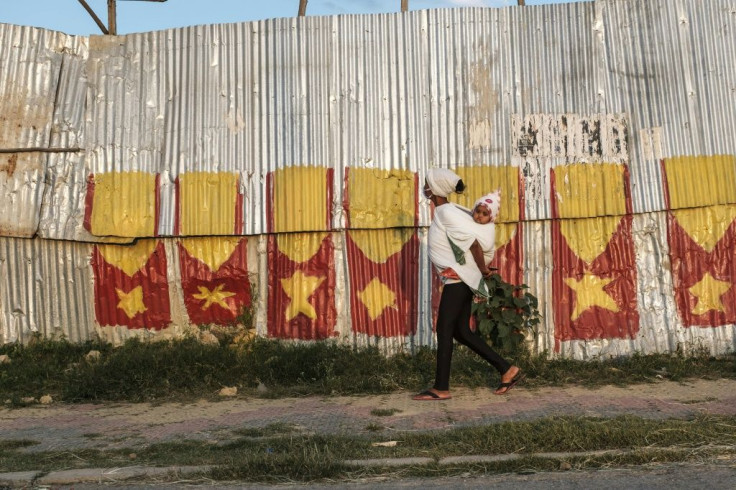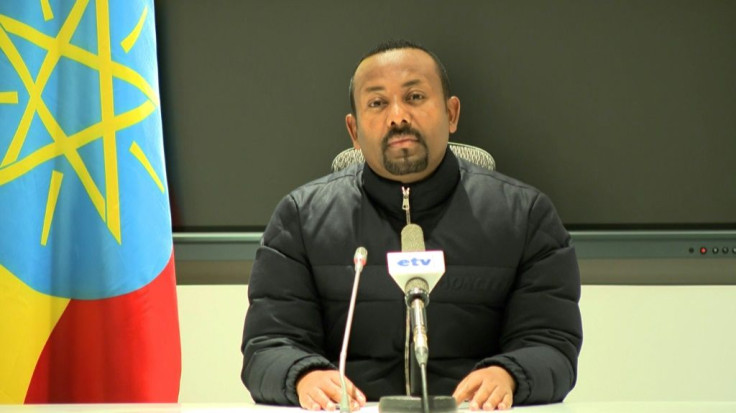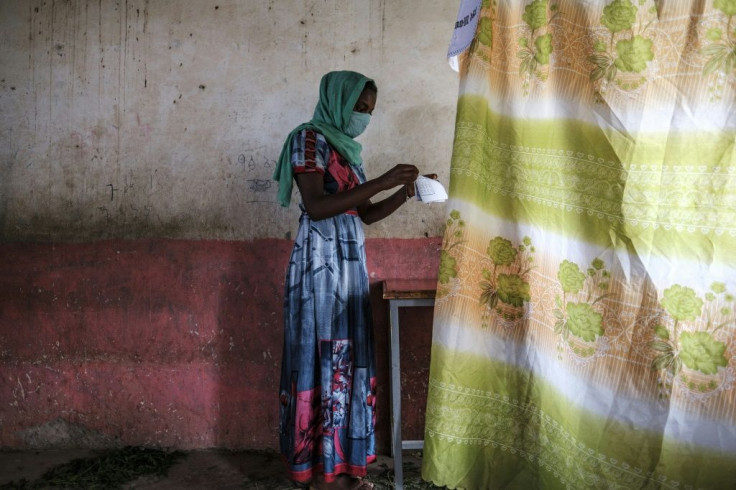Ethiopia's Abiy Vows Airstrikes In Tigray Conflict
Ethiopian Prime Minister Abiy Ahmed vowed Friday "there will be air strikes" in the northern region of Tigray and urged civilians to reduce mass gatherings to avoid becoming "collateral damage" in the conflict.
Fears are mounting over the prospect of civil war after Abiy announced a military operation in the federal state, with which he is embroiled in a bitter feud.
Amid accounts of fighting in the west of the region, a diplomatic source told AFP there had already been at least one credible report this week of an air strike near the regional capital, Mekele, targeting military assets.
Speaking on state television Friday in Tigrinya, the language of Tigray, Abiy seemed to indicate more were on the way, dealing another blow to diplomats' efforts to bring a conflict in Africa's second most populous country to a swift end.

"There will be air strikes. These air strikes aren't aimed at civilians but rather at targets stored by this dangerous group," Abiy said, referring to hardware held by Tigray's ruling party.
"In order not to cause collateral damage, I call on civilians in cities to reduce mass gatherings," Abiy added.
Abiy, the winner of last year's Nobel Peace Prize, announced Wednesday he had ordered military operations in Tigray in response to an "attack" on a federal military camp by the Tigray People's Liberation Front (TPLF).
The TPLF denies the attack occurred and accuses Abiy of concocting the story to justify deploying the military against it.

The military escalation came after months of rising tensions between the federal government and Tigray, whose leaders effectively ruled the country for three decades until Abiy came to power in 2018.
Ethiopia's military declared Thursday it was at "war" with the TPLF but has vowed not to let fighting spread outside Tigray.
Details of hostilities -- and any casualties -- remained difficult to verify Friday as phone and internet connections to Tigray have been cut for three days.
Diplomats and humanitarian sources say fighting has unfolded in the west, including along the border between Tigray and the Amhara region to the south.

Some 25 combatants -- the majority of them federal forces -- have been treated at a hospital in the Amhara town of Abdurafi, and five deaths have been reported there, a humanitarian source said Friday.
An additional 50 fighters have been treated in the town of Dansha, while a further 30 have been transferred to a hospital in Gondar, roughly 180 kilometres (112 miles) south of the Tigray border, the source said.
In Gondar on Friday, residents contributed to the war effort against Tigray, donating blood and preparing care packages of biscuits and water to send to Amhara special forces at the border between the two regions.

Blood-donation tents have popped up in several locations, and organisers said hundreds of Gondar residents had donated since Wednesday.
"We are giving our blood to support the Amhara fighters... There are maybe injured military persons, that's why we give," Robel Samuel, 28, told AFP after donating.
"They are fighting for us. That's why we give not only today, but the next days and weeks we will support," he added.
Tigray and Amhara have long been at odds over land along the border, and the International Crisis Group (ICG) warned in June that "the dispute could escalate into conflict".
Several residents told AFP Friday they knew young men who had deployed to the border to join irregular militias there.
Earlier Friday, UN chief Antonio Guterres called for the immediate de-escalation of tensions amid reports of shelling and the gathering of troops along Tigray's borders.
"I'm deeply alarmed over the situation in the Tigray region of Ethiopia. The stability of Ethiopia is important for the entire Horn of Africa region," he wrote.
Abiy wrote later on Twitter that the military operations "have clear, limited and achievable objectives -- to restore the rule of law and the constitutional order."
He said the government "patiently tried for several months to resolve differences with TPLF leadership peacefully; we tried mediation, reconciliation, dialogue".
Addis Ababa has imposed a six-month state of emergency on Tigray, which Abiy's statement Friday explained would allow a federal forces to "disarm any security force" of the regional state.
Unless the fighting stops soon, conflict in Tigray "will be devastating not just for the country but for the entire Horn of Africa," ICG said in a statement this week.
Given Tigray's considerable military capabilities and its estimated 250,000 troops, war could be "lengthy and bloody", it said.
"Immediate, concerted mediation -- local, regional and international -- is needed to avert a descent into a broader crisis," the ICG said.
The TPLF dominated politics in Ethiopia for nearly three decades before Abiy came to power in 2018 on the back of anti-government protests, even though Tigrayans make up about six percent of a population of more than 100 million people.
Under Abiy, Tigrayan leaders have complained of being unfairly targeted in corruption prosecutions, removed from top positions and broadly scapegoated for the country's woes.
The feud became more intense after Tigray held its own elections in September, defying Abiy's government which had decided to postpone national polls due to the coronavirus pandemic.
© Copyright AFP 2024. All rights reserved.





















